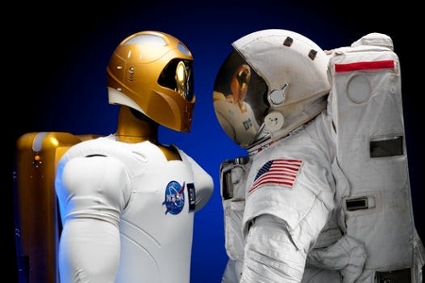What’s up with artificial intelligence? I’ve been looking at new TVs, and I was surprised to see some of them advertised with “virtual assistants” on board. Since when does my TV need a brain? I find it a bit creepy, to be honest–like something out of a science fiction movie. And I don’t understand why we need these assistants. If AI isn’t doing anything that a person can’t do him or herself, then what’s the point? Experts: what does AI do that makes it so worthwhile, and is anyone else finding this creepy and scary?
There is no question that artificial intelligence (or “AI”) is increasingly a priority for companies, governments, and consumers. What’s going on?
Right now, AI is being used in powerful (but, at times, surprisingly simple) ways. But AI’s ability to learn and get better at things without additional programming can make it incredibly useful. However simple the task may look from the outside (for instance, identifying a face–a “0 or 1” or “binary” task), the goal is scale, speed, and efficiency. That can make big differences to big companies, say the developers of intuitive tour apps at Acendia.
Of course, that’s not to say that AI can’t also add value while performing less “corporate” tasks. Setting alarms, keeping appointments, getting direction, and even listening to music can all be made easier with the help of a virtual assistant. When Siri appeared on the iPhone in 2011, she was among the first of what was to be an army of personal assistants: Amazon’s Alexa, Google’s Google Home, and Microsoft’s Cortana rank among the best-known of Siri’s competitors. Together, these AI assistants are finding their way onto more and more devices. The result is a more interconnected home for consumers: an “internet of things,” as some experts call it.
Are there causes for concern amidst all this progress? Certainly. Some of science and technology’s brightest minds have warned us about AI, including Stephen Hawking and Elon Musk. And privacy experts warn against the proliferation of microphones and internet connections in our everyday devices. It might be nice to speak to our smart TV and get movie recommendations, but it is alarming to some that simple appliances are gaining internet-connected microphones, and that so many of our life’s tasks and diversions will be run through the same big companies and popular AI systems.
There are good things and bad things about AI. There are ways it is sure to change our lives, as well as real impacts that are still to be determined. Perhaps we should be both excited and wary.
“It’s going to be interesting to see how society deals with artificial intelligence, but it will definitely be cool.” — Colin Angle


